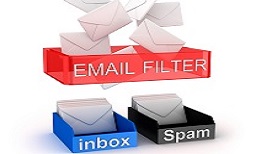- Home
- 7 Steps of Goal Setting
- How to Write an Email
How to Write an Email
How to write an email needs to take into account that many of the signals that we take for granted in ordinary face-to-face communication is not there. Have you have ever sent or received an email that was misunderstood, caused tension, or resulted in negative consequences? If so, then you know what I mean.
In fact in a survey conducted by Sendmail Inc in 2013, they found that “64% reported having either sent or received an email that resulted in unintended anger or confusion” In email you can’t rely on body language (which accounts for 55% of meaning in face-to-face communication) and you can’t rely on the pitch or tone (which accounts for 38%).
What you have to rely on is the words that are used – which is only 7% of what is taken in when communicating.
This article looks at how you can write emails that aren’t misunderstood and get the result that you want? More specifically it looks at 5 steps to write an effective email:
- Is email the right communication vehicle for this message
- Keep your subject lines to the point
- Watch your tone
- Keep messages clear and brief
- Proofread your email.
1. Is email the right communication vehicle for this message
According to the Radicati Group, the average office worker sends or receives 120 emails a day.
When I work with clients I notice that many workers are living out of their Inbox and the spend most of the day dealing with email. The sheer tide of email that comes in each day is one of the biggest sources of stress for them.
So the next time that you start writing an email ask yourself "Is this the right communication vehicle for this message?"
Ask yourself "should pick up the phone or use the IM?" for those questions that are going to require some back-and-forth discussion.

When writing email consider that there is a possibility that your email could be forwarded without thinking about the conversation thread below the initial email. Consider what sensitive or personal information you put in an email and use the general rule that what you are happy saying in an email you would also be happy to be put on the office noticeboard.
If communicating a task in your email then consider the urgency of the task that you are communicating. If my house is burning down I wouldn’t expect my wife to email me this. I would expect her to call me pronto. Well it is the same with expectations around email. A good rule for email etiquette is to set team expectations around email and whether it is the vehicle of communication for urgent communication.
The same goes for when you want to communicate bad news. Try to avoid email and rather communicate face-to-face so that you can also communicate empathy and compassion with your body language and tone.
2. Keep your subject lines brief
If you think about the title of a book or the headline on a newspaper, they are usually brief and capture your attention.
When we scroll down email in your Inbox most people will look at the subject line to decide whether to open the email. When considering how to write an email make sure that your subject line is clear and succinct enough to explain the content of the email. As a general rule I should be able to know the content of the email from your subject line.
|
Bad example Subject: Report |
Good Example Subject: Review p.15-p.20 of Report by March 21 |
Subject lines that are blank or have the word “hello” are very poor subject lines. For messages that require a response consider putting in when you would like the response. For example “Response required by March 18”
3. How to write an email that conveys the right tone
In face-to-face communication we read body language, watch their face for subtle cues, and hear the tone and pitch of what the person is saying. Email does not have this and so it increases the chances of being misunderstood.
Your choice of what you say, whether you use capitals, and even your punctuation can be misinterpreted. In this article on how to write an email, the first example below, John might think that Mary is frustrated, but, in reality, she feels fine.
|
Bad Example John, I need the numbers by COB today or otherwise I can’t call the client back when I said I would. Mary |
Good Example Hi John, I
appreciate all of your hard work on running the numbers. Could you
please send me the numbers by COB today so that I can phone the client
about it. Mary |
When considering how to write an email ask yourself how could my email be misinterpreted and if your intentions could be understood differently. If so, then can you use different words of phrases?
4. Keep your email messages brief
Nobody likes to receive a long-winded email that has multiple topics. Try keep your sentences brief and to the point. If you have multiple topics in emails consider sending a separate email for each topic so that your emails are more concise and it also aids managing email if you are dragging and dropping your emails into tasks or calendar.
It is important to use your common sense here. You don’t want to bombard somebody with emails. If you have multiple topics in an email then keep it simple, use dot points, and specify whether an action needs to be done by the recipient and by when.
5. Proofread your email
Have you ever had that sinking feeling that you just sent something to that important client with the wrong figures, or worse, you sent it to the wrong client?
Proofreading for grammar and punctuation is important as it conveys your professional image to the reader. As read through your email consider that your email is concise, not ambiguous, and conveys the right tone and intention.
If you liked how to write an email then you may also like how to construct an email template or an effective email signature to keep your message consistent.



New! Comments
Have your say about what you just read! Leave me a comment in the box below.